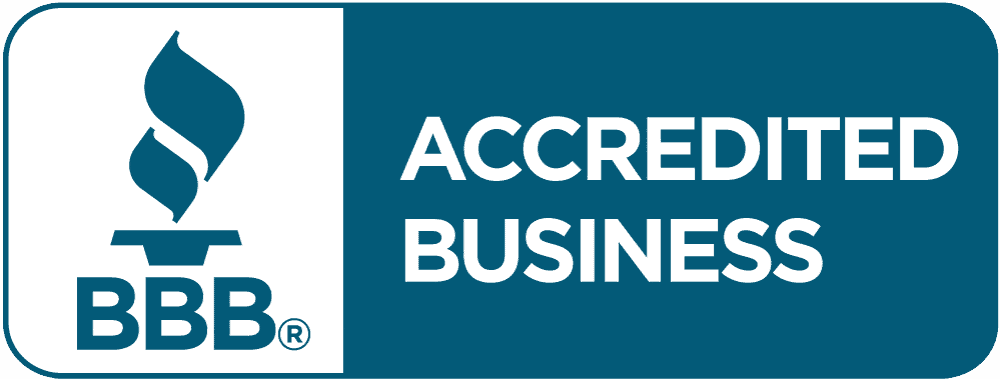The Big-Picture Benefit of Solar Energy
The solar industry has come a long way in recent years, and continues to grow more accessible and affordable. As solar energy becomes attainable to the everyday person, the benefits of solar come with it. Creating new jobs, securing energy independence for our local communities and making the world an all around healthier place.
The Solar Industry Creates More Jobs
With the growing access to solar, many home and business owners are making the switch to renewable energy from the sun. With all of these solar installations happening across the country, there has been a huge influx in the number of jobs within the field. This increased demand for solar means more opportunities for employment.The solar industry employs thousands of workers in various departments: from mining, developing, manufacturing, shipping, distribution, sales, design, engineering, installation, maintenance and more. As technology further advances the industry is only going to grow larger, creating thousands of reliable, and sustainable, career opportunities.
As we move away from the coal mines, our focus turns to clean energy. According to Forbes, “nearly 3.3 million Americans working in clean energy – outnumbering fossil fuel workers by 3-to-1.” Of that 3.3 million workers, 335,000 people work in the solar energy industry. For the solar installers out in the field, their job outlook can see up to a 27% growth rate between 2022-2032, according to the US Bureau of Labor Statistics.
Another important job role in the solar industry are electricians. Check out our “Become an Electrician to Save the Planet” blog post to learn more about how the solar industry has created more jobs for electricians around the country within the solar industry.
Renewable Energy has Environmental and Public Health Benefits
Traditional ways of producing electricity for the electrical grid burns large amounts of harmful fossil fuels, typically coal, oil and natural gas, that release carbon dioxide and other greenhouse gasses into the environment. This is a problem for two main reasons. First, these gasses get trapped in our atmosphere, warming our world wide climate, which if continues will continue leading us into catastrophic natural disasters. Second, these emissions and pollutants that are in the air all around us, are breathed in through our lungs, skin and the food that we eat. The repercussions from these gasses entering our body have been linked to many short and long term health issues.
Solar energy, on the other hand, is a clean, renewable energy source. Once installed, solar goes on to produce electricity for 25+ years without any additional inputs. Solar is an industry that still requires fossil fuels to mine, manufacture, distribute and install the panels. However, once installed the consumption of fossil fuels goes to 0% and all the electricity created from the solar panels comes from the best renewable energy source possible: the Sun! According to the US energy information administration, “Studies conducted by a number of organizations and researchers have concluded that PV systems can produce the equivalent amount of energy that was used to manufacture the systems within 1 to 4 years. Most PV systems have operating lives of up to 30 years or more.” By replacing energy that relies solely on fossil fuels with solar energy, we are able to reduce the amount of carbon emissions, directly benefiting our environmental and public health.
Currently, most of the electricity generated in the United States comes from burning fossil fuels. In comparison, solar energy is a renewable resource that is ever replenishing. In an article from EnergySage, “if we could capture all of the sun’s energy shining on the Earth for just one hour, we could power the entire world for one year!”
A shift to solar and renewable energy creates a cleaner, greener world for the next generation.
Solar Power Ensures Energy Security and Independence
Coal and fossil fuels are a nonrenewable energy source. Once we use it all up it’s gone, and gone for good. Solar energy is infinitely renewable which is a more secure and reliable energy source when compared to fossil fuels. Fossil fuels stimulate a world wide economy that relies on multiple countries and a massive network of miners, refiners, and distributors to get the oil from all of the world to the place it is being burned. This relies on many fragile global relationships that can be affected by world wide events, wars, and other manipulated factors well out of our control.
Solar on the other is right here in our own backyards and rooftops. This means we can make electricity for our own home, neighborhood, and community at a micro and macro scale to end our reliance on fragile foreign oil supplies. Solar, along with other renewable energy sources, breaks up the centralized energy supply. Instead of one central power station that supplies a whole region, which could be subject to terrorist or menacing attacks, we have many smaller power production sources over a distributed network allowing our electrical grid to work on a much wider, and more reliable scale.
Pairing solar systems with battery backup will create more energy security and independence for the individual and the community at scale. Battery storage allows for redundancy in the building energy supply. These systems can be used to power the building when the grid is down, at certain times of the day, or at night time depending on how your local metering structure works and which way the system would best serve the buildings financial and functional needs. In some situations, these systems can be programmed to allow the utility to pull power from and pay for your battery storage. This is done to offset the grid consumption at peak demand times of the day and is already happening wide spread in Hawaii. This prevents the utilities peaker plants from turning on to meet the intermittent demand which is much better for the environment and the utilities pocketbook.
Imagine a situation where a whole neighborhood has solar with storage and is connected to the grid where this neighborhood community could be 100% self-sufficient by buying and selling electricity from themselves and their neighbors. All in all, as people switch to solar energy + storage, it will lessen the load on fossil fuel. This will prevent energy shortages, security challenges, market vulnerability and keep our national energy supply secure and affordable.
Solar Energy Reduces the Strain on the Electric Grid
Hundreds of thousands of homes and businesses rely on the electrical grid to power their buildings. High loads at peak usage times of day cause strains on the electrical grid that may cause issues down the road. Individuals and businesses that go solar plus storage can take some of the load off of the electricity grid and allow it to run more efficiently. When solar systems are installed, property owners offset the electricity they use with the electricity they produce from solar through self-consumption and net metering.
Hot summer months and cold winter months are notorious for using electricity at an all time high. With most building’s energy being consumed by HVAC, the electrical demands are mainly determined by the time of year. There are obvious trends of energy consumption that cause strain on the grid when everyone’s air conditioning or heating come on at the hottest or coldest part of the day. Some utilities have already shifted to an increase in costs during these peak hours. Most utilities are working towards this style of metering. Solar is very advantageous in the hot summer days when the solar is producing at the same time air conditioning is being consumed the most. Winter months can be more challenging to offset as the heat mostly runs through the night and early morning when solar production is at its lowest. Using the energy storage to offset this heat consumption can be a helpful tool to lower strain on the utility and lower cost. This lessened strain on the utility grid, coupled with the financial and efficiency saving for the home or business owner make going solar a win win for both parties.
Net Metering
Net metering is a great benefit for homeowners and business owners making the switch to solar. Here in Western North Carolina, Duke Energy offers net metering for home and business owner metering contracts. Net metering is a credit for credit metering system where excess solar energy is sold back to the grid for KW credits that are equivalent to the cost of electricity sold back to you when the solar is not producing enough to cover the building’s load. This bank of credits resets to zero every May and no payment or rollover is allowed for excess solar credits. The credits are only used to offset power consumed when solar does not cover the building’s load. Duke does a great job at explaining net metering as follows. “Net metering is a special metering and billing agreement between utilities and their customers that facilitates the connection of small, renewable energy-generating systems to the power grid. Customers are able to have their own renewable energy generator while also maintaining a reliable source of energy from the utility during times when their renewable generators are not producing energy.”
Want a more in depth look on how net metering works? Check our Net Metering Blog.
Related Posts
Rhino Renewables Solar & Electric
Rhino Renewables Solar & Electric Charging The Future CALL US NOW Rhino Renewables Solar & Electric Rhino Renewables Solar & Electric Asheville and Western North...
Read More


